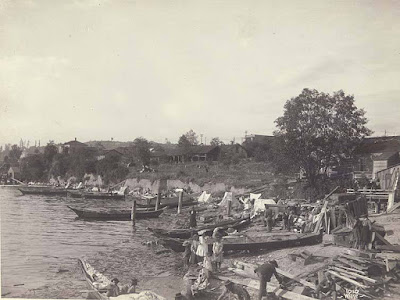Different groups and governments have started marking Indigenous Peoples' Day instead of (or in addition to Columbus Day). This year, for the first time, a Presidential proclamation recognizes the day. See today's stories from NPR and the New York Times.

|
Many institutions have begun acknowledging that they are on indigenous peoples' land. For example, the Washington Law Review states
Washington Law Review (WLR) acknowledges the Coast Salish peoples’ original ownership of the land on which the University of Washington sits, the traditional territory of all tribes and bands within the Suquamish, Tulalip, Duwamish, and Muckleshoot nations. WLR further acknowledges the state’s continuing obligation to fulfill promises made in the Treaty of Point Elliott.
The editors consulted with former Professor Emeritus Robert Anderson, then Director of UW Law's Native American Law Center, in crafting the statement. Anderson was recently confirmed to be Solicitor of the United States Department of the Interior (although his agency profile still lists him as Principal Deputy Solicitor). (Other agency work might be higher priority than updating web profiles. Browse recent press releases to learn more about Interior's activities.)
Land acknowledgments can be controversial. In some cases, they might seem like mere lip service. Or they might give the mistaken impression that the indigenous people who once occupied the land are simply part of a mythic past. This essay by three anthropologists 2021 explores the topic (The Conversation, Oct. 7).
Would you like to learn more about treaties with local tribes, federal Indian law, and tribal law? Check out our guide, Indian & Tribal Law.

No comments:
Post a Comment